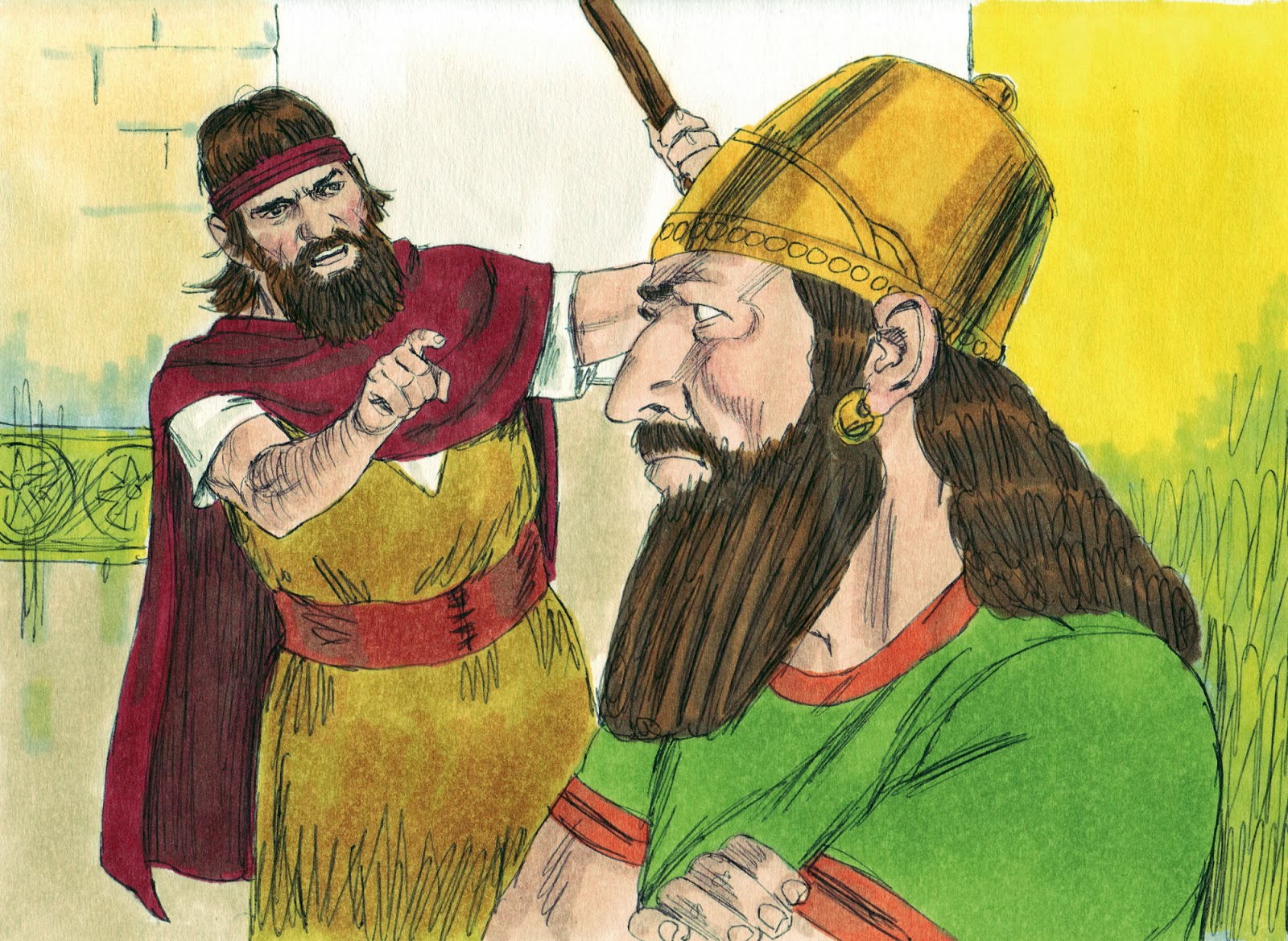The Complex Legacy Of King Ahab: A Biblical Ruler
King Ahab, a prominent figure in the biblical narrative, has long captivated historians and theologians alike. His reign over the northern kingdom of Israel is marked by both significant achievements and troubling controversies. Ahab's story is woven into the fabric of the Old Testament, presenting a ruler who was as ambitious as he was flawed. Through his alliances and conflicts, Ahab's legacy continues to resonate in discussions about leadership, morality, and divine justice.
As one of the most discussed kings in biblical history, Ahab's life offers a glimpse into the complexities of leadership during a tumultuous period. He is often viewed through the lens of his relationship with the prophet Elijah, which showcases the tensions between divine authority and human ambition. Their encounters not only highlight Ahab's struggles but also illuminate the broader spiritual and political challenges of ancient Israel.
Understanding King Ahab’s reign requires an exploration of his personal life, the political landscape of his time, and the enduring lessons that can be drawn from his rule. From his marriage to Jezebel to his conflicts with neighboring kingdoms, Ahab's narrative serves as a powerful reminder of the consequences of choices made in power.
What is the Biography of King Ahab?
King Ahab reigned as the seventh king of Israel from approximately 874 to 853 BCE. He is primarily known from the accounts in the books of 1 Kings and 2 Kings in the Old Testament. His rule was characterized by both military endeavors and significant political alliances, most notably through his marriage to Jezebel, a Phoenician princess.
Personal Details and Bio Data of King Ahab
| Detail | Information |
|---|---|
| Name | Ahab |
| Title | King of Israel |
| Reign | Approx. 874-853 BCE |
| Spouse | Jezebel |
| Father | Omri |
| Notable Events | Conflict with Elijah, War with Aram, Naboth's Vineyard |
| Death | Killed in battle against Aram |
What Were the Major Events of King Ahab's Reign?
King Ahab's reign is marked by several key events that significantly impacted the kingdom of Israel:
- Marriage to Jezebel: Ahab's union with Jezebel introduced the worship of Baal into Israel, which led to significant religious conflicts.
- Conflict with Elijah: The prophet Elijah opposed Ahab's idolatry, leading to dramatic confrontations, including the contest on Mount Carmel.
- War with Aram: Ahab engaged in military campaigns against the Arameans, which had mixed outcomes, affecting Israel's stability.
- Naboth's Vineyard: Ahab's desire for Naboth's vineyard, which led to Naboth's unjust execution, remains one of the most discussed moral failures of his reign.
How Did King Ahab's Actions Impact Israel?
Ahab's reign had profound implications for the spiritual and political landscape of Israel:
- Religious Syncretism: The introduction of Baal worship led to a decline in the worship of Yahweh, creating a divided religious community.
- Prophetic Opposition: The rise of prophets like Elijah marked a resistance to Ahab's policies and a call to return to traditional worship.
- Political Alliances: Ahab's alliances through marriage strengthened Israel's position but often at the cost of compromising its values.
What Can We Learn from King Ahab's Leadership Style?
Ahab's leadership offers valuable lessons about power and responsibility:
- Consequences of Poor Decisions: Ahab's choices, particularly regarding Naboth's vineyard, highlight the moral implications of leadership.
- Importance of Accountability: Ahab's relationship with prophets emphasizes the need for leaders to be held accountable to a higher moral standard.
- Balancing Ambition and Ethics: Ahab's ambition often overshadowed ethical considerations, leading to detrimental consequences for his kingdom.
What Was King Ahab's Legacy?
The legacy of King Ahab is one of complexity and contradiction. While he is remembered for his military endeavors and alliances, his actions also serve as a cautionary tale about the dangers of idolatry and moral compromise. Ahab's story reminds us that the pursuit of power must be tempered with ethical decision-making and accountability.
How Does King Ahab Compare to Other Biblical Kings?
When compared to other biblical kings, Ahab's legacy is often viewed through a negative lens due to his idolatry and conflicts with prophets. However, he also exhibited traits of strategic leadership and ambition, akin to other rulers like David and Solomon, albeit with a more tumultuous outcome. His life serves as a contrast to those who pursued righteousness and faithfulness to Yahweh.
What Is the Significance of Ahab's Story in Modern Context?
The story of King Ahab remains relevant today as it addresses themes of leadership, moral integrity, and the consequences of choices made in power. His narrative can inspire contemporary leaders to reflect on their own values and the impact of their decisions on their communities. The biblical accounts serve as a historical lesson that transcends time, urging modern society to uphold ethical standards in leadership.
In conclusion, King Ahab's reign was a tapestry of ambition, conflict, and moral complexity. His story challenges us to consider the weight of our decisions and the importance of accountability in leadership. The lessons derived from Ahab's life continue to resonate, reminding us of the timeless nature of ethical governance and the enduring impact of our actions on future generations.
Unveiling The Enigma Of Prince Rogers Nelson
Exploring The Dark Beauty Of Criminal Artwork
Chelhov: The Enigmatic Journey Of A Literary Genius


